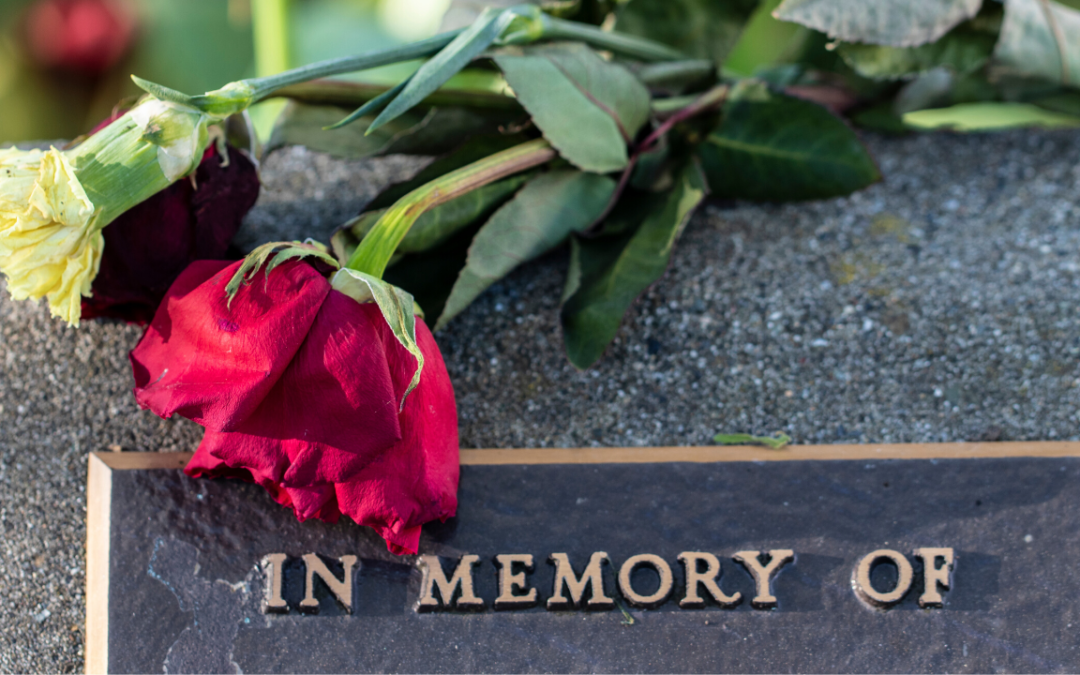The COVID-19 pandemic has significantly disrupted the social, cultural and economic environment of the United States. The effects of the health crisis are especially profound in the death care industry, where funeral and cemetery providers are working overtime to meet demand and support families during these challenging times. One thing that is becoming clear is the pandemic has changed death rituals substantially — saying a final goodbye to a loved one is no longer what it used to be, and the end-of-life process has been irrevocably altered.
Social Distancing Effects on Funerals
No one could have predicted for the large-scale effects that social distancing has had on traditional funeral and burial services. Even when looking back to the 1918 Spanish Flu pandemic where public funerals and wakes were banned in certain cities, funeral directors could not have known that almost the same thing would happen 100 years later despite all the medical advances of the 21st Century.
The social distancing and stay-at-home requirements of 2020 have limited funeral gatherings to a maximum of 10 people or less in certain states. Restrictions include no hugging, kissing or hand holding, and funeral guests are encouraged to stay at least six feet apart from each other during the service. This has been a difficult adjustment for many families — the true essence of a funeral is being able to comfort and support bereaved mourners, and it’s just not the same offering sympathy from a distance.
Many funeral homes are now livestreaming funeral and memorial services on private channels or social media sites like Facebook, so that more people can experience the event in real time. Some funeral directors are even arranging drive-through viewings for family members and friends to pay their last respects while maintaining social distancing guidelines. It may seem strange to attend a live-streamed funeral or a drive-by visitation, but it is a practical option
during these crisis times. And while it can’t replace the personal connection of a traditional funeral gathering, more families will likely demand these options even after the pandemic ends.
Delayed/Postponed Services
Under normal circumstances, you can make funeral arrangements within a week of a loved one’s death. But burial timelines are being pushed out during this pandemic. Many families coping with the loss of a loved one due to COVID-19 are having to postpone funeral and burial services for several weeks. The Coronavirus crisis has hindered how quickly bodies can be transported from place of death to the funeral home, and shipping the deceased person’s remains to another state or country is almost impossible with airlines operating at a bare minimum.
In addition, many funeral homes can only schedule a handful of services daily and in some areas there aren’t enough licensed funeral providers with the capacity to serve the increased number of families affected by Coronavirus. Families that can’t plan the funeral they always envisioned for their loved one due to social gathering restrictions may prefer to wait until a later date to make arrangements. However, the selected funeral home may lack the space to shelter the remains for an extended period of time, and not many people can afford the increased costs for storage.
Cemeteries and crematories have also been impacted by the crisis. Some cemeteries are quickly running out of space and crematories are operating beyond capacity which means that burials and cremations are being pushed out days and even weeks into the future. Unfortunately, being able to hold a funeral and graveside ceremony after a loved one dies is no longer a certainty in this uncertain environment, but funeral directors are creating various options for their families.
Complicated Grief
COVID-19 has caused untold havoc on the grief process, perhaps the most important of all death rituals. It’s true that grief is a personal and unique experience, and there’s no “one size fits all” approach, but nobody can deny the importance of being able to mourn the loss of a loved one with family and friends. Due to the Coronavirus crisis, some bereaved families have missed out on the opportunity to honor and celebrate their dearly departed the way they would like — even with creative livestreaming and online memorial options, saying a final goodbye to a loved one just doesn’t feel the same during a pandemic.
Stay-at-home orders and social distancing mean that bereaved families can’t receive much-needed emotional comfort and support from the community in the ways they are used to — they are forced to grieve alone, which can be a painful and overwhelming experience. Others may not be able to acknowledge the death of a loved one because they were absent at the hospital or at the funeral/burial, which can make it all seem surreal. This struggle can lead to instances of compounded or complicated grief, where feelings of sorrow, pain, guilt, or anger are intensified and the person can’t seem to adjust to a new reality without their loved one. Someone who is experiencing complicated grief may self-isolate, have trouble with normal routines or become depressed.
Phone calls, emails and letters can help when someone is grieving alone, and tech tools are especially useful if you can’t make a personal visit. Dr. Alan Wolfelt, a well-known grief expert, encourages people to take advantage of video chats as face-to-face conversations can make all the difference when someone is mourning a loved one.
If you are having trouble coping with a personal loss or have symptoms of intense grief, consider getting help from a professional therapist.
After the Pandemic
Once the Coronavirus crisis ends, what will be the new normal? For funeral home and cemetery owners, the answer to this question will be essential to creating a successful legacy for your firm. For practical and customized guidance on adjusting to a changed reality, please call on the experts at Johnson Consulting Group.
